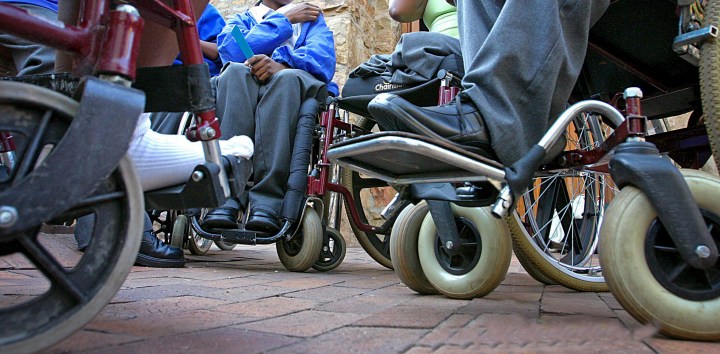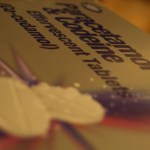SYSTEMIC EXCLUSION OP-ED
The state of education for learners with disabilities is a crisis within a crisis

Our society remains at all levels shot through with systemic exclusion of the disability community, reflecting not only the injustice of ongoing, unseen oppression, but also a colossal squandering of human potential.
Recently in Daily Maverick, Prof Mark Tomlinson wrote of what he described as the “ruins” of our national education system, evidenced in many ways, but perhaps most starkly in the June 2023 findings of the Progress in International Reading Literacy Study (Pirls).
Read more in Daily Maverick: Call it what it is — the SA education system is in complete ruins
This global comparative study found that in 2021, 81% of South African Grade 4 children were unable to read for meaning. Tomlinson’s simple enumerating of the catastrophic implications of this finding for a generation of our nation elicited an unsurprising, partly ad hominem defensive response from Basic Education Minister Angie Motshekga, absurdly accusing him of being an apartheid apologist.
Read more in Daily Maverick: No, Prof Tomlinson, SA’s basic education system is not in ruins, it’s on the rise
But no matter the obfuscation, this statistic – an indelible stain on our democracy – is one from which there is no hiding place.
Behind the Pirls score is a pervasive crisis of capacity, leadership, infrastructure and quality assurance in our education system, leaving children with the prospect of being subsumed into the already vast pool of young adults who are excluded from skilled, or any, employment.
Now, against this backdrop, let us set the reality of the multiple and complex additional risk factors for exclusion from quality education faced by children with disabilities. To work as a researcher in this area is to constantly be confronted with parents, often – but not exclusively – from low-income communities, in states of exhaustion, rage and defeat amid struggles for access to any form of meaningful education for their child, which may span years.
By 2016, the government estimated that 597,000 South African children with disabilities were in no form of schooling; again, an indelible stain, and the foundation for lifelong exclusion from full participation in further education, employment and, by consequence, the life of the community.
In 2023, Minister Motshekga claimed that 90% of 7- to 15-year-old learners with disabilities were now in school, a number which, frankly, challenges credulity.
Systemic exclusion
First, widespread evidence of systemic exclusion continues to emerge. Second, mere presence in a school unprepared for real inclusion does, by no means, equate to access to quality education.
Added to this, in her report on the 2023 matriculation outcomes, the minister framed as a victory the fact that 0.5% of learners who sat for final examinations were young people with disabilities.
Following the 2011 census numbers, prevalence of disability in 5- to 19-year-olds in South Africa was conservatively estimated at around 6%. This suggests that something of the order of 11 out of 12 learners with disabilities had not reached this point.
Besides the education arena, our society remains at all levels shot through with systemic exclusion of the disability community, reflecting not only the injustice of ongoing, unseen oppression, but also a colossal squandering of human potential.
Education of children with disabilities is ostensibly guided by Education White Paper 6 (2001) which, in line with international best practice, aims to provide quality education to such learners in inclusive settings alongside able-bodied peers, and within their own communities. This is a policy which we fully support, reflecting a worldwide break with a past in which harmful social divisions surrounding disability were often reinforced by segregated special schooling.
The white paper provides for the progressive conversion of existing special schools into regional resource centres to support disability inclusion in local schools.
Under the apartheid regime, almost all special schools were reserved for white children, leaving the majority of young people with disabilities entirely excluded from education. This presented the massive task of creating an inclusive system post-1994 to form the basis for the creation of a society that welcomes disability as an essential part of human diversity.
Grave challenge
The problem is that the provisions of the White Paper, which is currently under review, have been implemented in a manner best described as chequered, reflecting both its lack of prioritisation by government and a marked naivete regarding both the gravity and the complexity of the challenge.
As a parent of a child with disability in our country (for whom the exorbitant fees of private schooling are out of reach), one faces three possibilities in the fight for access to education.
First is admission to segregated special schooling. For many parents, this possibility may inspire hope; sadly, it is often misplaced. Successive research and media reports have documented the poor conditions in many of such schools, reflecting low educational standards, inadequate infrastructure, unreliable access to essential resources such as accessible teaching materials and assistive technology, as well as neglect and abuse (see here, here, here and here).
At schools for learners with visual impairment, for example, matric level mathematics (and not maths literacy) and science are typically not offered at all, based on an anachronistic, uninformed and perhaps avoidant idea that success in these subjects for such learners is impossible, narrowing possibilities for higher education.
Illegally, children with disabilities are often turned away from their neighbourhood schools, to be placed on years-long waiting lists for entrance to special schools which are likely to be residential, and a long distance from home.
Parents desperate to secure an education for their child place hope in the promise of such schools, even as poverty prevents them from so much as seeing the institution for which their child is destined.
If a place does become available, a child with a physical, sensory, intellectual or other form of disability is then separated from their family and community supports, to be placed in a residential school in which the possibility of an education which prepares the way for meaningful employment may be slim, under conditions which at some schools may cause psychological and physical harm.
The second possibility is that a child with disability is placed in an inclusive setting in their own community, in what are known as “full-service schools”. This term is applied to schools which have ostensibly undergone transformation in order to provide for the needs of learners with disabilities.
As already noted, such transformation must be multi-layered and complex if real inclusiveness is to be achieved, and evidence suggests that this is seldom the case.
Capacitation of teachers
One key issue, among many, is the capacitation of teachers to deal with this new challenge. Particular skills such as specialised teaching methodologies, disability-inclusive curriculum development, the producing of accessible teaching and learning materials, and the creation of classroom and school environments that are welcoming and attuned to the needs of learners with disabilities, are all essential.
Attempts by the government to implement a standard adapted curriculum have been unsuccessful and resisted by teachers, who cite a lack of adequate training. While the government claims otherwise, evidence suggests that the training received by educators across the country to meet the wave of inclusion pictured by policy has been patchy, superficial or non-existent.
Within university teacher education, so-called “differentiated teaching” is (if present at all) an optional module, which many students do not regard as relevant to their training.
What this capacity gap points to is the crucial difference between learners with disabilities simply being present in schools, and the experience of real participation, embodying full access to the curriculum, and to all supports needed in order to build academic success – government communications tend to conflate these starkly different realities.
For multitudes of learners, the experience is one of nominal inclusion, while the denial of the right to quality education persists.
Unconstitutional
The third possibility is that children with disabilities simply never see the inside of a school. Parents may, or may not, have fought unsuccessfully for inclusion, being turned away by education staff with no understanding of how this embodies a contravention of our Constitution, as well as the UN Convention on the Rights of Persons with Disabilities of 2006, to which we are a signatory.
Stigma and prejudiced myths about the potential of children with disabilities remain stubborn and pervasive, not least within our schooling system itself.
The distressing circumstances outlined above, in our view as disability scholars, are emblematic of a larger phenomenon within our political culture. Here, government representatives pay occasional lip service to disability as an issue of social justice and systemic exclusion, while displaying little sustained, evidence-based engagement with this massive aspect of our shared ambition to create a more caring society for all.
Obviously, access to quality education is absolutely pivotal. The state of education for learners with disabilities is a crisis within a crisis; for many, it is hard to remain hopeful. DM
Prof Brian Watermeyer is Associate Professor in the Division of Disability and Rehabilitation Studies, Department of Global Health, Stellenbosch University.
Prof Juan Bornman is Professor in the Division of Speech, Language and Hearing Therapy in the Department of Health and Rehabilitation Sciences, University of Pretoria.



















Comments - Please login in order to comment.